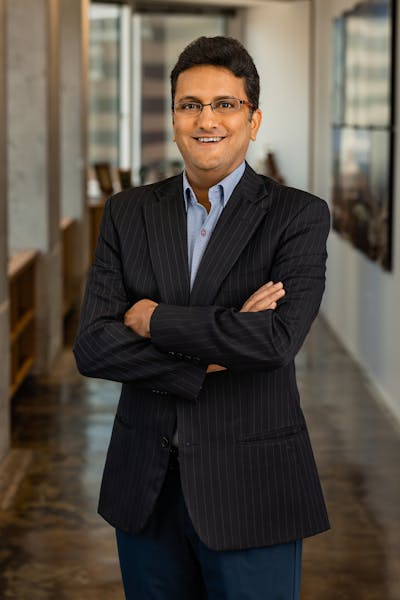
This article originally appeared in the March 2024 issue of Concrete International.
Overview
Since the ACI Foundation’s establishment in 1989, the organization has striven to influence a future where everyone has the knowledge needed to use concrete effectively to meet the demands of a changing world. For decades, ACI and the ACI Foundation have been supporting students studying in concrete-related fields—making strategic investments in ideas, research, and people to create the future of the concrete industry—which is exemplified in the tagline “Building the Future.”
Over the last two decades, the ACI Foundation’s Fellowship and Scholarship Program has been steadily growing. During that time, the program has helped fund the education of over 330 up-and-coming industry professionals by seeking out and awarding financial aid to high-potential students with varied career pursuits from across the United States, Canada, Mexico, the Middle East, and North Africa.
Industry Impact of the Scholarship Program
In early 2022, the Foundation began the process of gathering, compiling, and organizing data from the last 20 years on its Scholarship program’s impact, not only on ACI but on the concrete industry as a whole—including overall industry retention of ACI Foundation awardees, their continued involvement within ACI, their meaningful contributions to the concrete industry, and the legacies of mentorship shared from awardee to awardee.
The Foundation Fellowship and Scholarship Program fundamentally provides financial aid to deserving students for tuition and school expenses, along with optional industry mentorship. Fellowship finalists and awardees are also invited to attend ACI Conventions within their award cycle for recognition and additional networking opportunities.
Given the program’s emphasis on providing a holistic experience for students and a path to ACI participation, it comes as no surprise that the data shows a 93% overall industry retention rate for both ACI Foundation Fellowship and Scholarship recipients since 2002.
These awardees have contributed greatly to advancing the industry and ACI, working across sectors including research and education, concrete restoration and repair, design, code improvement, and more. They have, in turn, become mentors to up-and-coming concrete professionals, and their work, expertise, and dedication uplift communities and make concrete safe and sustainable.
The Foundation sat down with several past awardees, including Walter P Moore’s Kyle Dunning, to hear about their journeys of receiving their award, establishing themselves in their careers, their impact on the concrete industry, and their plans for the future.
Enriching Community through Design
Kyle Dunning, PE, LEED Green Associate, and Principal, was the 2011 recipient of the Baker Student Fellowship, the 2012 recipient of the Bertold E. Weinberg Scholarship, and has worked at Walter P Moore, Austin, Texas, for over 10 years. Dunning has already assisted on many major infrastructure projects as well as the Travis County Civil and Family Courts Facility and was recently made a principal at the company.
“What I’ve found the most rewarding is the impact I can personally have on the built environment around me—and we’re very fortunate that Austin is a very active market,” he said. “There’s a lot of building diversity that I get to contribute to. We’ve worked on the university arena and football stadiums here in town, as well as courthouses and hospitals. So, these big projects that the public interacts with every day are ideally adding value to the community and enriching their lives. Being able to innovate on the structure system but also provide a reliable and safe structure is very rewarding.”
Dunning states that his biggest career accomplishment thus far has been serving as the lead structural and design engineer at the Texas Children’s Hospital in Austin, which opened in February 2024. “Just seeing that go from the early design and innovation phase to construction, and now to getting ready to open with nurses and doctors already testing out the space is really exciting,” he said.
Dunning also sits on an internal sustainability committee at Walter P Moore, which explores research topics such as new and upcoming systems for concrete, recycled aggregates, and carbon tracking in general for the company’s designs.
“It’s all about figuring out what’s achievable and what we can implement. The building industry is very comfortable with things the way they are, and making a pitch to change the process and introduce something new can be scary. But it can also be very rewarding. A goal of mine is to keep pushing the decision-makers and funders of projects to try new things and to hopefully reap the rewards.”


